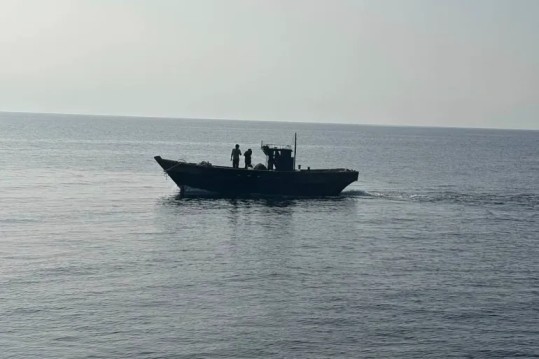South Korea has sent back six North Koreans who unintentionally crossed into its waters earlier this year, with authorities confirming all had consistently expressed a desire to return home.
The country’s Ministry of Unification said the repatriation marks the first under President Lee Jae-myung, who assumed office in June after campaigning on a platform to ease tensions with the North.
Two of the individuals had entered South Korean waters in March and remained for four months one of the longest stays on record for non-defectors.
The other four, identified as crew members of a vessel, drifted across the contentious maritime boundary between the two Koreas in May.
Instances of North Koreans straying into the South are not uncommon, often due to the use of poorly equipped wooden boats that struggle to stay on course once off track.
Historically, both governments would arrange for returnees to be repatriated overland, provided they expressed no intent to defect. However, diplomatic cooperation has deteriorated in recent years.
In April 2023, Pyongyang cut off all official lines of communication with Seoul, a move that followed escalating hostilities. Eight months later, North Korean leader Kim Jong Un publicly declared that reunification was no longer an objective, further shutting the door on inter-Korean dialogue.
According to South Korea's Unification Ministry, attempts were made via the US-led United Nations Command to notify the North of the planned return.
While no official response was received, the presence of North Korean boats and patrols at the designated handover site on Wednesday suggests a behind-the-scenes agreement may have been reached.
Experts believe the returnees will likely undergo intense questioning upon arrival. Nam Sung-wook, a former head of the Korea National Strategy Institute, said authorities in the North will be keen to know whether the individuals were exposed to sensitive information or had any contact with South Korean intelligence.
Some analysts suggest the North may use their return to bolster internal propaganda. Lim Eul-chul, a professor at Kyungnam University, noted that the fact they requested to go back could be portrayed as a win for Kim Jong Un's leadership.
Michael Madden, a North Korea analyst with the Stimson Center, observed that the initial incidents occurred when South Korea was under interim leadership following the impeachment of former President Yoon Suk Yeol.
He speculated that the political transition may have delayed response times on both sides, adding that neither government wanted to be accused of politically motivated or unlawful repatriations.
The move has drawn criticism from some defectors. Activist Lee Min-bok expressed disappointment that the individuals were not allowed to interact with defectors in the South before being returned. He argued that they deserved the chance to understand the risks of going back and the realities of life outside North Korea.
Lee, known for launching anti-regime leaflets into the North via balloon, said his group has largely paused such activities, anticipating a crackdown under the new administration, which has taken a softer approach to Pyongyang. Lawmakers in Seoul are currently debating a bill that would outlaw the leaflet campaigns altogether.
Since taking office, President Lee has taken visible steps to reduce hostilities. A week into his term, the military suspended border loudspeaker broadcasts aimed at the North, calling it a gesture of goodwill to rebuild trust and foster peace.
However, some analysts remain skeptical about the prospects of improved relations. Celeste Arrington of George Washington University noted that Pyongyang has strengthened ties with Moscow and seems less interested in engaging the South.
She also pointed to a lack of public support within South Korea for renewed outreach, saying there are few signs of meaningful dialogue resuming anytime soon.
